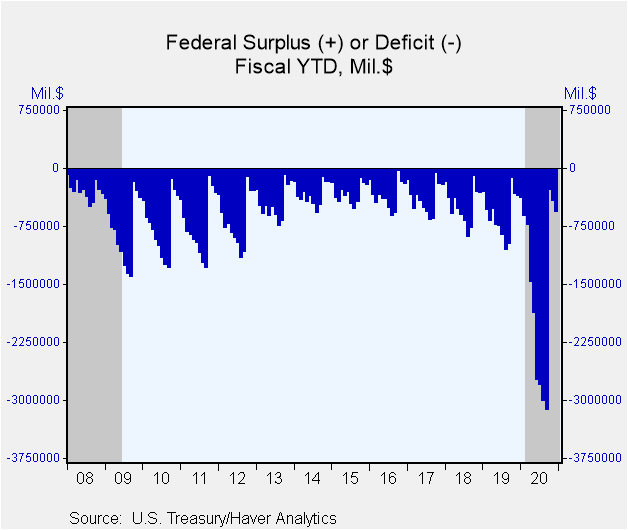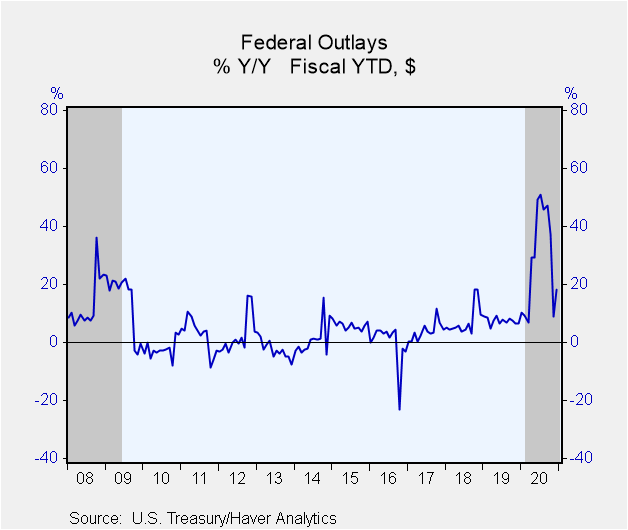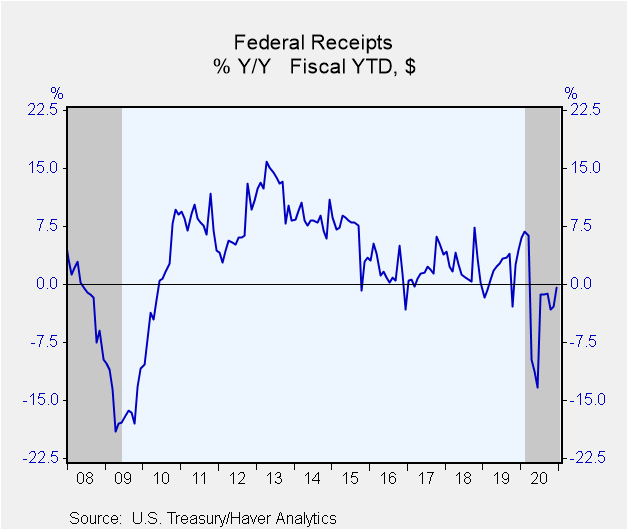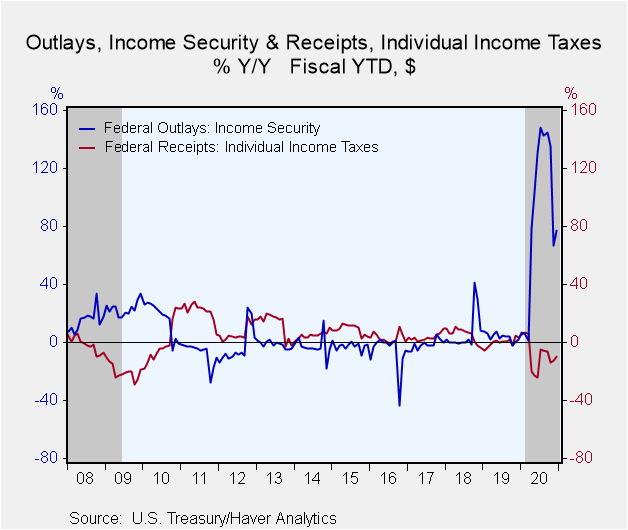 Global| Jan 13 2021
Global| Jan 13 2021U.S. Government Budget Deficit Stays Roughly Steady in December
by:Tom Moeller
|in:Economy in Brief
Summary
• Deficit share of GDP continues to rise. • Outlay surge still driven by increased jobless benefits. • Personal tax receipts remain under pressure. The U.S. Treasury Department reported that the federal budget deficit of $143.6 [...]
• Deficit share of GDP continues to rise.
• Outlay surge still driven by increased jobless benefits.
• Personal tax receipts remain under pressure.
The U.S. Treasury Department reported that the federal budget deficit of $143.6 billion during December compared to November's $145.3 billion. It pulled the deficit for this fiscal year's first quarter to $572.9 billion compared to $356.6 billion last year. The Action Economics Forecast Survey anticipated a December deficit of $234.0 billion.
Federal government outlays have risen 18.3% y/y so far in FY'21. The increase was driven by a 77.1% surge in income security payments stemming from coronavirus relief payments and a higher unemployment rate. Spending on health programs increased 27.7% y/y. Social security payments grew 13.7% y/y while defense outlays rose 4.1% y/y so far in FY'21. Medicare payments grew 3.2% y/y.
Overall revenues have declined 0.4% y/y so far this fiscal year. The recession has lowered individual income tax payments by 9.8% y/y and corporate tax receipts by 16.1% so far in FY'21. Growth in social insurance taxes rose to 9.4% y/y, but the reduction in global economic trade lowered customs duties by 14.1% y/y.
Haver's data on Federal Government outlays are contained in USECON; detailed data can be found in the GOVFIN database. The Action Economics Forecast Survey numbers are in the AS1REPNA database.
Tom Moeller
AuthorMore in Author Profile »Prior to joining Haver Analytics in 2000, Mr. Moeller worked as the Economist at Chancellor Capital Management from 1985 to 1999. There, he developed comprehensive economic forecasts and interpreted economic data for equity and fixed income portfolio managers. Also at Chancellor, Mr. Moeller worked as an equity analyst and was responsible for researching and rating companies in the economically sensitive automobile and housing industries for investment in Chancellor’s equity portfolio. Prior to joining Chancellor, Mr. Moeller was an Economist at Citibank from 1979 to 1984. He also analyzed pricing behavior in the metals industry for the Council on Wage and Price Stability in Washington, D.C. In 1999, Mr. Moeller received the award for most accurate forecast from the Forecasters' Club of New York. From 1990 to 1992 he was President of the New York Association for Business Economists. Mr. Moeller earned an M.B.A. in Finance from Fordham University, where he graduated in 1987. He holds a Bachelor of Arts in Economics from George Washington University.
More Economy in Brief
 Global| Feb 05 2026
Global| Feb 05 2026Charts of the Week: Balanced Policy, Resilient Data and AI Narratives
by:Andrew Cates










